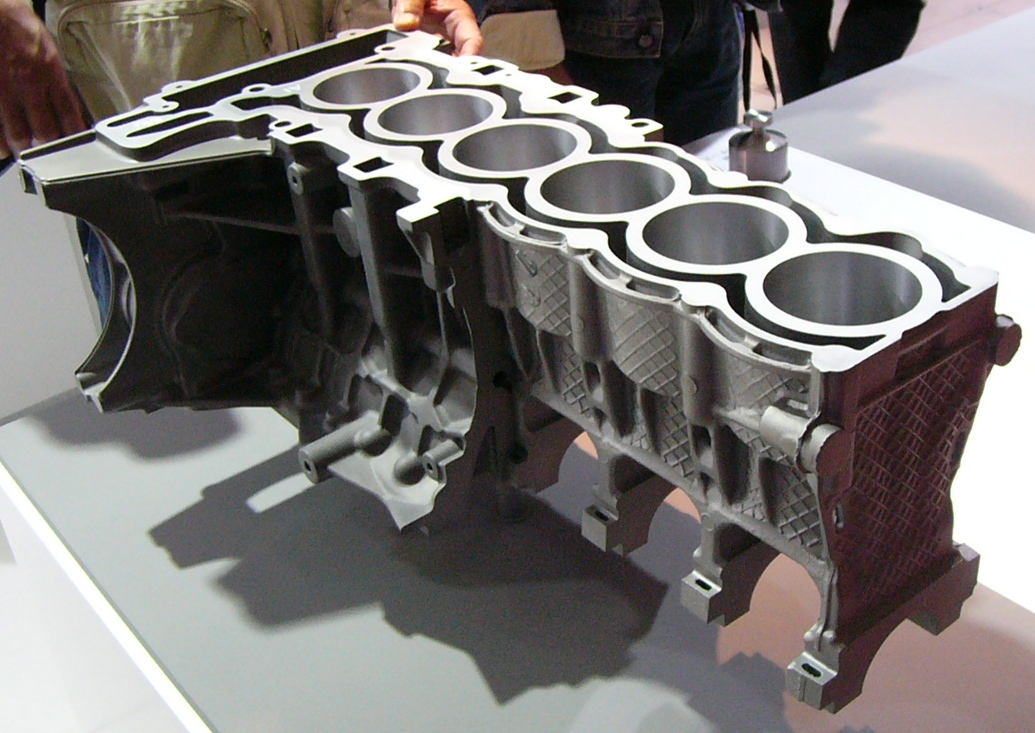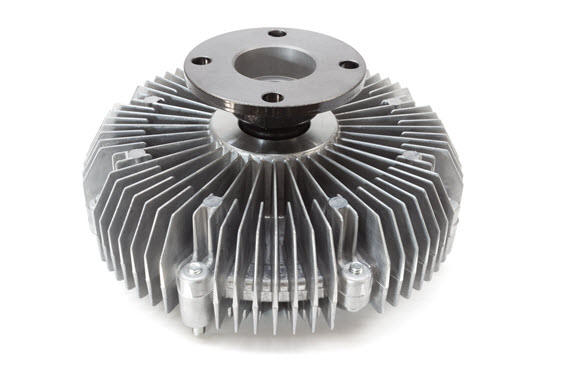Discovering the Conveniences and Practical Uses of Aluminum Castings in Today's Market
Light weight aluminum spreadings have ended up being progressively relevant in numerous markets because of their one-of-a-kind qualities. Their light-weight nature and resistance to corrosion make them ideal for demanding applications. In addition, the remarkable strength-to-weight ratio provides substantial benefits in layout and production. As industries remain to discover their potential, the full range of aluminum castings' applications and benefits stays to be fully discovered. What lies in advance for this flexible material?
The Lightweight Benefit of Light Weight Aluminum Castings
Lots of products are made use of in production, light weight aluminum castings stand out primarily due to their lightweight residential or commercial properties. This characteristic makes light weight aluminum castings an appealing option for numerous industries, particularly in aerospace and automobile applications, where weight decrease is essential for boosting fuel effectiveness and performance. The light-weight nature of aluminum allows manufacturers to produce components that are simpler to install and take care of, eventually decreasing labor prices.
In addition, the ability to produce complex forms without substantial weight penalties enables developers to innovate while keeping structural honesty. Aluminum spreadings can successfully replace larger materials, resulting in substantial cost savings in delivery and functional expenses. Their lightweight benefit also adds to improved item durability, as lighter components typically bring about minimized damage on equipment. On the whole, the light-weight residential properties of light weight aluminum castings offer makers with an one-upmanship, promoting innovations in product design and performance throughout different markets.

Outstanding Deterioration Resistance
Aluminum castings possess an all-natural resistance to oxidation, which substantially enhances their longevity in various settings. This intrinsic home not just adds to their durability but additionally lines up with the light-weight benefit that aluminum offers. Consequently, aluminum castings are increasingly identified for their outstanding rust resistance in countless applications.

Naturally Immune to Oxidation
One of the standout attributes of aluminum castings is their outstanding corrosion resistance, which originates from an all-natural oxidation procedure. When exposed to air, light weight aluminum reacts to form a slim, safety layer of light weight aluminum oxide. This layer works as an obstacle versus more oxidation and safeguards the underlying steel from corrosive aspects such as dampness and salts. Unlike other metals, this oxide layer is self-repairing; if damaged, it swiftly reforms when revealed to air. This one-of-a-kind home boosts the long life of light weight aluminum castings in different environments, making them perfect for applications in markets such as aerospace, auto, and marine. The all-natural resistance to oxidation greatly reduces maintenance costs and increases the dependability of light weight aluminum castings in demanding conditions.
Lightweight Resilience Advantage
The light-weight nature of aluminum spreadings contributes significantly to their longevity, making them a helpful selection in various industries. This remarkable resilience is mainly credited to aluminum's natural resistance to corrosion, which is enhanced better via anodizing and other surface treatments. Unlike many metals, aluminum does not rust; rather, it forms a protective oxide layer that guards it from ecological damages. This home is particularly beneficial in industries such as automobile and aerospace, where weight decrease is crucial without compromising stamina. In addition, the longevity of light weight aluminum castings reduces upkeep costs and substitutes, supplying financial advantages in time. Consequently, their light-weight longevity and deterioration resistance placement light weight aluminum castings as a premium material for modern manufacturing applications.
Superior Strength-to-Weight Proportion
An exceptional attribute of light weight aluminum spreadings is their superior strength-to-weight ratio, which makes them very preferable in various applications. This inherent residential property allows light weight aluminum castings to stand up to considerable anxiety while staying lightweight, an essential variable in industries such as aerospace, vehicle, and production. Designers often prefer light weight aluminum castings for components that require both durability and minimized weight, enhancing fuel efficiency and efficiency.
The high strength-to-weight proportion additionally assists in the layout of intricate forms and frameworks, making aluminum spreadings flexible for complicated applications. The ability to preserve structural honesty under difficult conditions guarantees durability and reliability in items, from airplane frames to automobile components. This advantage contributes to the expanding fad of making use of light weight aluminum spreadings in ingenious designs, eventually resulting in improved functionality and efficiency throughout diverse industries. Consequently, the remarkable strength-to-weight ratio of aluminum spreadings positions them as a crucial material in modern-day design and production.
Cost-Effectiveness in Production
Cost-effectiveness in light weight aluminum casting manufacturing is largely accomplished via decreased product waste and reliable production processes. By optimizing layouts and utilizing innovative techniques, makers can minimize excess product usage while keeping high quality requirements. This approach not only reduces manufacturing expenses yet also adds to much more lasting techniques within the market.
Decreased Material Waste
Lowering material waste in aluminum casting processes greatly enhances manufacturing efficiency. By maximizing the design and production techniques, business can minimize excess scrap and enhance source application. This reduction in waste not only decreases product expenses but likewise contributes to a more lasting manufacturing design. The ability to reuse aluminum more supports cost-effectiveness, enabling makers to reclaim and reuse materials without compromising high quality. As the sector significantly concentrates on sustainability, reduced product waste aligns with environmental objectives while concurrently increasing success. Eventually, effective usage of basic materials strengthens the affordable position of services out there, making light weight aluminum castings a favorable alternative in numerous applications. The critical method to decreasing waste reflects a commitment to both financial and eco-friendly duty.
Effective Production Processes
While typical manufacturing processes can sustain significant expenses, light weight aluminum spreading offers an extra efficient alternative that boosts overall manufacturing profitability. This technique lessens product waste and permits exact control over the manufacturing procedure, causing lowered labor and Full Report operational costs. The capability to produce complex forms with fewer steps further streamlines manufacturing, contributing to shorter lead times. Furthermore, light weight aluminum's light-weight nature and exceptional thermal conductivity permit energy savings throughout manufacturing and in the final application. By using modern casting technologies, manufacturers can achieve greater throughput without compromising high quality. Consequently, light weight aluminum spreading sticks out as a cost-effective option, making it an eye-catching choice for businesses intending to maximize their production processes in today's competitive market.
Flexibility Throughout Industries
Aluminum spreadings demonstrate remarkable flexibility throughout numerous industries, as they can be customized to meet details requirements and applications. In the vehicle sector, aluminum spreadings are used in engine blocks, transmission real estates, and wheels, providing light-weight yet long lasting services that improve gas performance. The aerospace industry additionally takes advantage of light weight aluminum spreadings, using them in structural components and engine components due to their strength-to-weight proportion.
In the durable goods industry, manufacturers utilize light weight aluminum spreadings for products varying from pots and pans to furnishings, supplying both aesthetic charm and functionality. The electronics industry utilizes aluminum castings for housings and warm sinks, guaranteeing reliable thermal management. In addition, the building and construction field leverages aluminum castings for architectural elements and structural parts, improving longevity and style versatility. This broad applicability highlights light weight aluminum castings as an essential resource, fulfilling the varied needs of different markets while keeping high performance and integrity.
Sustainability and Environmental Impact
As industries progressively prioritize sustainable practices, light weight aluminum spreadings become an environmentally friendly option as a result of their recyclability and reduced ecological footprint. Light weight aluminum is just one of the most recycled materials globally, with the capability to be repurposed multiple times without degradation of high quality. This particular significantly decreases the demand for resources and energy intake associated with main light weight aluminum manufacturing, which is Resources energy-intensive.
Furthermore, aluminum castings add to lightweight designs, bring about fuel efficiency in transportation applications such as aerospace and vehicle industries. Their toughness and resistance to corrosion extend item life expectancies, further lessening waste and source use gradually. Several makers are taking on accountable sourcing and environmentally pleasant manufacturing techniques, boosting the sustainability of aluminum casting procedures. In general, aluminum spreadings stand for a practical option for companies aiming to lower their environmental influence while achieving efficiency and efficiency.
Advancements in Aluminum Casting Technologies
Current improvements in aluminum spreading technologies have greatly enhanced the performance and top quality of production processes. Developments such as 3D printing and advanced mold-making methods have enabled manufacturers to produce detailed designs with reduced product waste. This change not just boosts the accuracy of actors parts but additionally shortens lead times, permitting for rapid prototyping and faster market entrance.
In addition, the consolidation of sophisticated computer system simulations aids in anticipating potential defects throughout casting, leading to higher-quality outcomes (Aluminum Foundry). The use of lightweight alloys has likewise added to the advancement of stronger, much more durable items, accommodating industries ranging from vehicle to aerospace
Furthermore, automated spreading processes have emerged, reducing human mistake and enhancing production speed. Jointly, these developments are changing the light weight aluminum spreading landscape, driving greater competition and sustainability in manufacturing. As sectors remain to evolve, these modern technologies will certainly play an essential role in conference future demands for efficiency and quality.
Regularly Asked Concerns
How Do Aluminum Castings Contrast to Various Other Steels in Regards To Thermal Conductivity?
Light weight aluminum spreadings show premium thermal conductivity contrasted to many metals, such as steel and iron - Aluminum Castings. Their lightweight nature and reliable heat circulation make them excellent for applications requiring reliable thermal management in various sectors
What Are the Typical Defects Located in Light Weight Aluminum Castings?
Typical flaws in light weight aluminum spreadings include porosity, shrinkage, additions, and surface irregularities. These issues frequently occur from incorrect air conditioning prices, insufficient mold layout, or contaminations, affecting the total quality and efficiency of the final item.
Can Aluminum Castings Be Recycled, and How?
Aluminum spreadings can be recycled efficiently. The process includes collecting, melting, and changing the light weight aluminum, which reduces waste and conserves sources. This recycling contributes to sustainability while preserving the product's properties for future usage.
What Are the Common Lead Times for Light Weight Aluminum Casting Manufacturing?
Generally, lead times for light weight aluminum casting production array from 2 to 6 weeks, depending upon aspects such as complexity, tooling requirements, and manufacturing volume. Efficiency can improve with recognized supplier relationships and enhanced production processes.
Just how Does the Surface Area Complete Affect Light Weight Aluminum Spreading Efficiency?
The surface coating check out here substantially impacts aluminum casting efficiency by affecting corrosion resistance, aesthetic quality, and friction attributes. A smoother finish improves toughness and capability, while a rougher appearance can improve bond for succeeding layers or therapies.
Lots of materials are utilized in manufacturing, aluminum castings stand out mostly due to their lightweight buildings. When subjected to air, aluminum reacts to develop a slim, safety layer of light weight aluminum oxide. Cost-effectiveness in aluminum spreading manufacturing is mainly attained via decreased material waste and reliable manufacturing processes. Decreasing product waste in aluminum casting procedures substantially boosts production effectiveness. Eventually, effective usage of raw materials strengthens the competitive placement of businesses in the market, making light weight aluminum castings a desirable option in various applications.